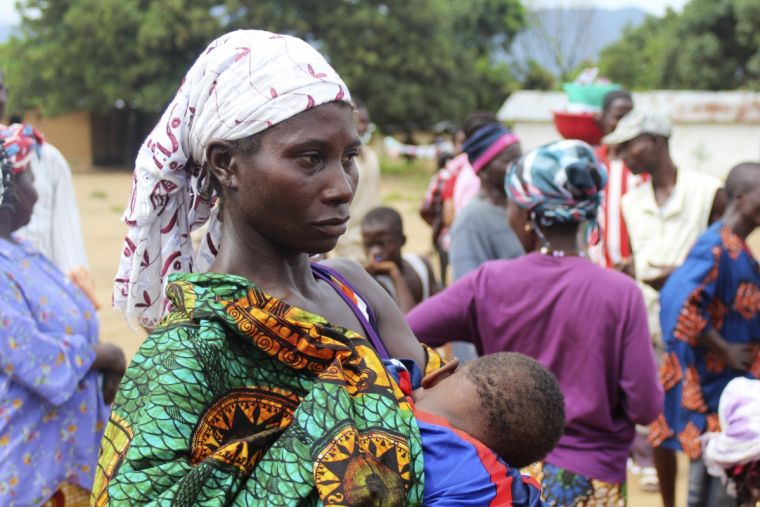Ebola in Sierra Leone: Food aid saving quarantined families from starvation

Food aid is being distributed to families confined to their homes in two of Sierra Leone's Ebola hotspots in order to stave off hunger.
Around 2,100 people in the eastern Kailahun district and the rural Freetown suburb of Waterloo are being quarantined at home for 21 days at a time because of Ebola.
They include pregnant women, single mothers, HIV sufferers, the elderly and young children.
Christian Aid's Sierra Leone country manager Jeanne Kamara said many of the people in quarantine are not receiving enough food to sustain them.
The food kits being distributed by Christian Aid will feed a family for two weeks and contain oil, tinned fish, rice, onions and powdered milk, as well as hygiene items and infra-red thermometers.
Christian Aid is targeting the food aid distribution to the two hot spots but the overall need is much bigger, with the organisation putting the number of people at risk of going hungry because of Ebola at around a million people nationwide.
Kamara blamed "notable failures" in the coordination of the quarantine process which has resulted in food aid not reaching everyone who needs it.
"The outbreak has hindered people's ability to earn a living, so tensions are rising as they become increasingly desperate," she said.
"The issue of food security is becoming a very real concern – for some, an even greater concern than the risk of catching the virus.
"This was demonstrated by a recent stampede during food distribution in the outskirts of Freetown. It's an unbearable situation for people who live hand-to-mouth, are facing rising food prices and are struggling to sustain already fragile livelihoods."
Sierra Leone is struggling to contain the spread of Ebola, with 26 new cases confirmed on Tuesday in the country's western districts, including Freetown, the Associated Press reported.
It has been gripped by the virus along with neighbouring countries Liberia and Guinea, and over 5,000 people across the region have been killed in the outbreak so far.
The death rate in Sierra Leone alone has surpassed 1,000 and although more treatment centres are being erected across the country, Christian Aid said the country has seen a sharp increase in the number of people being infected.
Sierra Leone's president Ernest Bai Koroma said this week that the nation's battle against Ebola would only be won when people start doing as medical experts have advised and avoid touching the sick or dead, refrain from washing corpses, and report quickly to health centres in the event of feeling ill, AP reported.
The surge in infections is straining the country's medical infrastructure and Christian Aid is helping to fill in some of the gaps by stocking community health teams with thousands of disposable gloves and powdered chlorine.
Kamara added: "With the recent surge of cases in Sierra Leone's hotspot areas, the demand for hospital beds still far outstrips supply. The welcome escalation of international assistance will take time to translate into trained medical personnel and treatment centres. Until then, effective medical treatment is no longer an option for most people."











